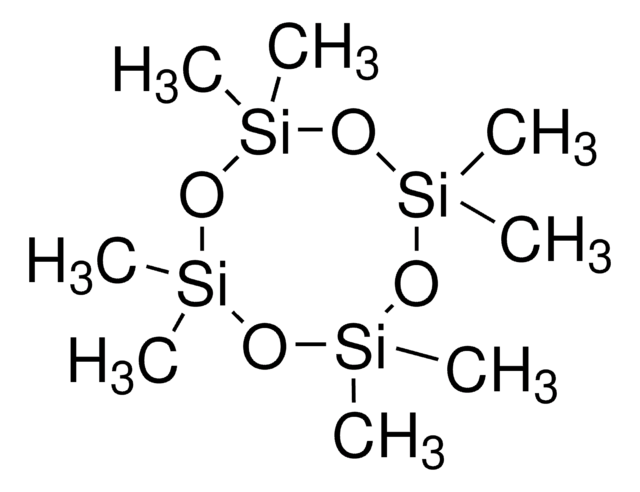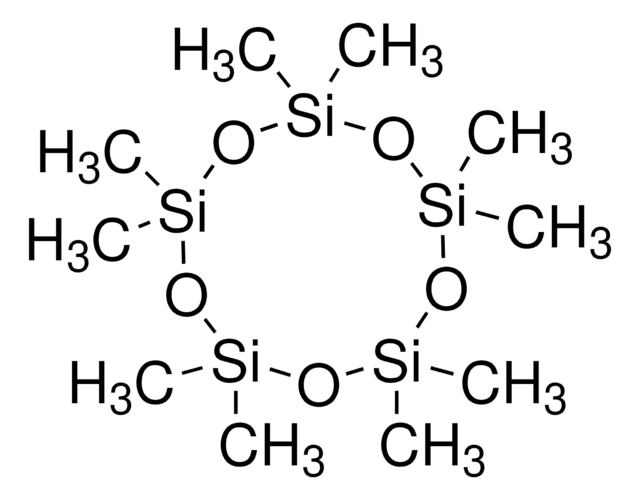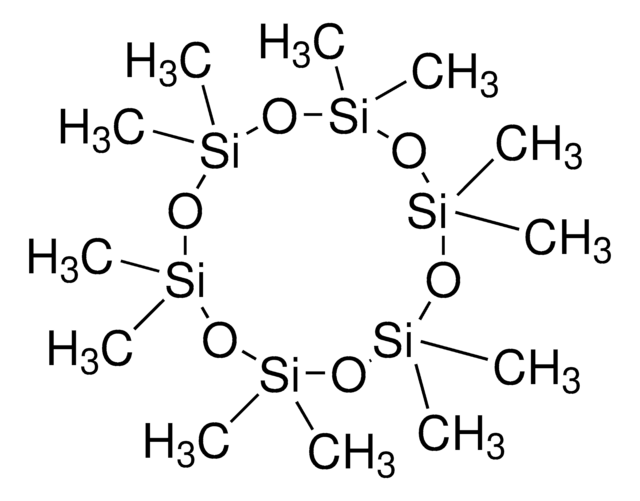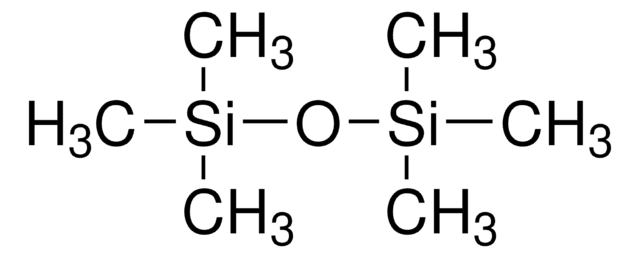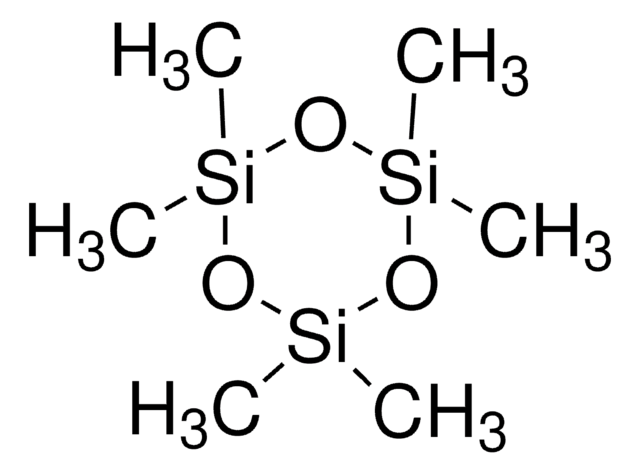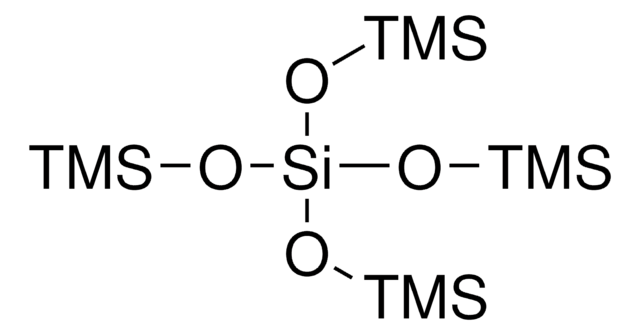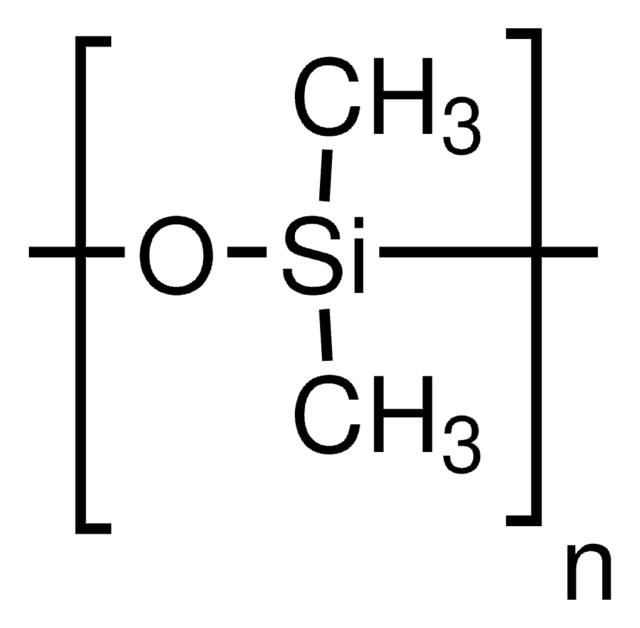447269
Dodecamethylpentasiloxane
97%
Synonym(s):
1,1,1,3,3,5,5,7,7,9,9,9-Dodecamethylpentasiloxane, DC 200 Fluid 2
About This Item
Recommended Products
vapor pressure
<1 mmHg ( 20 °C)
Quality Level
Assay
97%
refractive index
n20/D 1.392 (lit.)
bp
230 °C (lit.)
mp
−81 °C (lit.)
density
0.875 g/mL at 25 °C (lit.)
SMILES string
C[Si](C)(C)O[Si](C)(C)O[Si](C)(C)O[Si](C)(C)O[Si](C)(C)C
InChI
1S/C12H36O4Si5/c1-17(2,3)13-19(7,8)15-21(11,12)16-20(9,10)14-18(4,5)6/h1-12H3
InChI key
FBZANXDWQAVSTQ-UHFFFAOYSA-N
Looking for similar products? Visit Product Comparison Guide
General description
Application
- Adsorption Characteristics of Dodecamethylpentasiloxane from Landfill Leachate: This study investigates the adsorption behavior of dodecamethylpentasiloxane in municipal solid waste, crucial for environmental chemists and waste management specialists (Q Kong et al., 2022).
- Toxicity of Silicone Oil: This research evaluates the cytotoxicity of liquid low molecular weight cyclosiloxanes including dodecamethylpentasiloxane, significant for drug discovery chemists considering silicone oil applications (Y Chen et al., 2021).
- Bioaccumulation of Volatile Methylsiloxanes: Review of how volatile methylsiloxanes like dodecamethylpentasiloxane bioaccumulate in aquatic ecosystems, useful for environmental scientists and regulatory bodies (F Bernardo et al., 2022).
- Solid MRI Contrast Agents: Describes the use of dodecamethylpentasiloxane as a contrast agent for in vivo oxygen sensing, relevant to biomedical research and materials science (VH Liu et al., 2014).
- Effective Removal of Methyl Siloxane by Sewage Sludge Microbes: Discusses biodegradation of dodecamethylpentasiloxane, pertinent for environmental chemists and waste treatment research (Y Wang et al., 2019).
Storage Class Code
10 - Combustible liquids
WGK
WGK 3
Flash Point(F)
186.8 °F - closed cup
Flash Point(C)
86 °C - closed cup
Personal Protective Equipment
Choose from one of the most recent versions:
Already Own This Product?
Find documentation for the products that you have recently purchased in the Document Library.
Customers Also Viewed
Our team of scientists has experience in all areas of research including Life Science, Material Science, Chemical Synthesis, Chromatography, Analytical and many others.
Contact Technical Service

